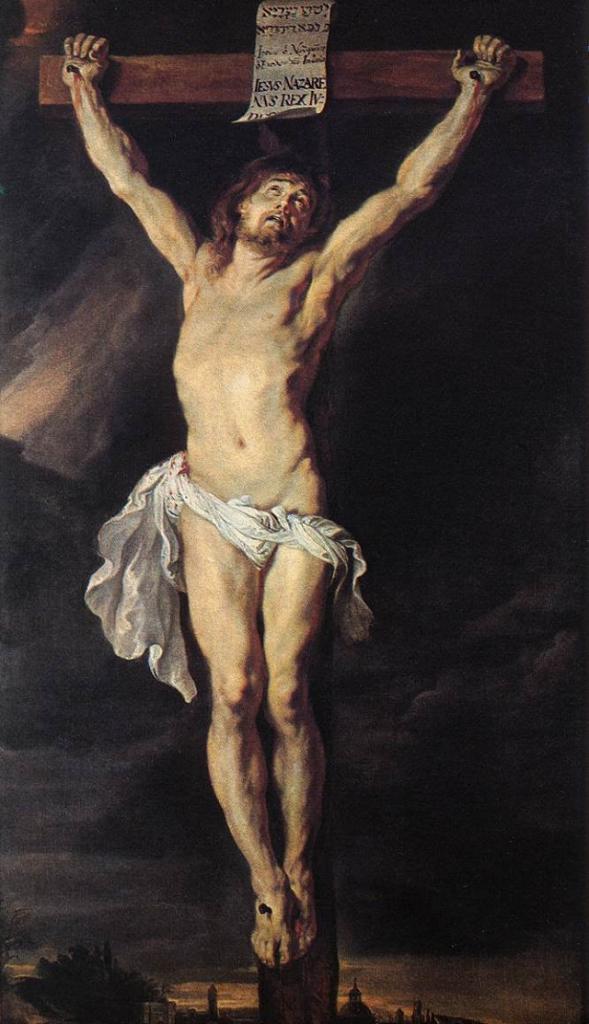33 NT Passages Against Limited Atonement and in Favor of Universal Atonement

For whom was Christ’s work on the cross intended?
“His People”
Matthew 1:21 And she shall bring forth a son, and thou shalt call his name JESUS: for he shall save his people from their sins.
Luke 1:68 Blessed be the Lord God of Israel; for he hath visited and redeemed his people,
Luke 1:77 To give knowledge of salvation unto his people by the remission of their sins,
“The Church”
Acts 20:28 Take heed therefore unto yourselves, and to all the flock, over the which the Holy Ghost hath made you overseers, to feed the church of God, which he hath purchased with his own blood.
“The Sheep”
John 10:11 I am the good shepherd: the good shepherd giveth his life for the sheep.
John 10:15 As the Father knoweth me, even so know I the Father: and I lay down my life for the sheep.
Hebrew 13:20 Now the God of peace, that brought again from the dead our Lord Jesus, that great shepherd of the sheep, through the blood of the everlasting covenant,
“Us”
Romans 5:8 But God commendeth his love toward us, in that, while we were yet sinners, Christ died for us.
Romans 8:32 He that spared not his own Son, but delivered him up for us all, how shall he not with him also freely give us all things?
2 Corinthians 5:21 For he hath made him to be sin for us, who knew no sin; that we might be made the righteousness of God in him.
Ephesians 5:2 And walk in love, as Christ also hath loved us, and hath given himself for us an offering and a sacrifice to God for a sweetsmelling savour.
1 Thessalonians 5:10 Who died for us, that, whether we wake or sleep, we should live together with him.
Hebrews 9:12 Neither by the blood of goats and calves, but by his own blood he entered in once into the holy place, having obtained eternal redemption [for us]. (the “for us” is implied, which is why the KJV translators included it here)
1 Peter 4:1 Forasmuch then as Christ hath suffered for us in the flesh, arm yourselves likewise with the same mind: for he that hath suffered in the flesh hath ceased from sin;
1 John 3:16 Hereby perceive we the love of God, because he laid down his life for us: and we ought to lay down our lives for the brethren.
“Please Hit ‘Subscribe’”! If you have received benefit from this or any of my other 5,000+ articles, please follow my blog by signing up (with your email address) on the sidebar to the right (you may have to scroll down a bit), above where there is an icon bar, “Sign Me Up!”: to receive notice when I post a new blog article. This is the equivalent of subscribing to a YouTube channel. My blog was rated #1 for Christian sites by leading AI tool, ChatGPT: endorsed by influential Protestant blogger Adrian Warnock. Actually, I partner with Kenny Burchard on the YouTube channel, Catholic Bible Highlights. Please subscribe there, too! Please also consider following me on Twitter / X and purchasing one or more of my 55 books. All of this helps me get more exposure, and (however little!) more income for my full-time apologetics work. Thanks so much and happy reading!
***
The problem here, which is a distressingly common one in Protestant apologetics, is highly selective citation. One particular strain of biblical thought (that the writer wrongly assumes to be “proof” of distinctive Protestant doctrines) is utilized, while passages on the same topic that are less amenable to Protestant doctrines (which I will produce below) are summarily ignored. This is a classic, “playbook” case of that. Turretinfan provides fifteen passages. I provide 33 that refute his erroneous interpretation of his fifteen passages.
Catholics can harmonize this strain of thought with the “universal atonement” prooftexts, whereas advocates of limited atonement cannot harmonize their passages with the ones we also submit. It’s a fairly elementary matter of logic. The following two propositions are not contradictory:
- Jesus died for Christians.
- Jesus died for all people.
This couplet is not contradictory because the class of Christians is part of — a subgroup of — the class of all persons. For the passages along the lines of #1 to have actual force of argument in favor of limited atonement, it’s necessary for them to include words such as “Christ died only” for “his people” or “the Church” or “the sheep” or “us” (meaning, Christian believers). But you’ll notice that the passages above never do that. Therefore, they can’t be thought of as contradictory to universal atonement (i.e., the view that Jesus died for all men, and that any person can potentially be saved by His sacrificial, redeeming death on the cross; not all are, because the damned freely choose to reject Jesus).
The Catholic, or believer in universal atonement (which includes the great majority of Protestants), on the other hand, can harmonize passages such as the following with the above passages, because there is no contradiction, per the above explanation. The Calvinist can’t do the converse, because he rules out universal atonement from the outset (which is why, I contend, that Turretinfan ignored all the verses that I will highlight). If Jesus died for all people, and opened up the possibility of salvation of any man (at least from our limited human perspective: not knowing with absolute certainty who is among the elect), this is contradictory to the belief that He died only for the elect.
Conclusion: Catholics and other Christians who deny limited atonement, can and must do so because this is the only way to harmonize all of the relevant scriptural data. We are taking into account all of the Bible, whereas the Calvinist looks at one portion of the evidence and ignores the other. We are respecting the Bible as God’s inspired, inerrant, infallible revelation much more than the Calvinist is, because we don’t ignore what happens to not fit into a preconceived theology — or “tradition of men” if you will — that we bring to the Bible. Now onto what the Bible teaches about universal atonement:
Luke 3:6 and all flesh shall see the salvation of God.
Luke 19:10 For the Son of man came to seek and to save the lost.
John 1:29 The next day he saw Jesus coming toward him, and said, “Behold, the Lamb of God, who takes away the sin of the world!”
John 3:14-17 “And as Moses lifted up the serpent in the wilderness, so must the Son of man be lifted up, [15] that whoever believes in him may have eternal life.” [16] For God so loved the world that he gave his only Son, that whoever believes in him should not perish but have eternal life. [17] For God sent the Son into the world, not to condemn the world, but that the world might be saved through him.
John 4:42 “. . . this is indeed the Savior of the world.”
John 6:33 For the bread of God is that which comes down from heaven, and gives life to the world. (cf. 8:12; 9:5)
John 6:51 I am the living bread which came down from heaven; if any one eats of this bread, he will live for ever; and the bread which I shall give for the life of the world is my flesh.
John 8:12 Again Jesus spoke to them, saying, “I am the light of the world; he who follows me will not walk in darkness, but will have the light of life.”
John 11:51-52 He did not say this of his own accord, but being high priest that year he prophesied that Jesus should die for the nation, [52] and not for the nation only, but to gather into one the children of God who are scattered abroad.
John 12:32 and I, when I am lifted up from the earth, will draw all men to myself.
John 12:46-47 I have come as light into the world, that whoever believes in me may not remain in darkness. [47] . . . I did not come to judge the world but to save the world.
John 17:21 that they may all be one; even as thou, Father, art in me, and I in thee, that they also may be in us, so that the world may believe that thou hast sent me. (cf. 17:23)
Acts 2:21 And it shall be that whoever calls on the name of the Lord shall be saved. (cf. Rom 10:13)
Acts 10:34-35 And Peter opened his mouth and said: “Truly I perceive that God shows no partiality, [35] but in every nation any one who fears him and does what is right is acceptable to him.
Romans 5:6 . . . Christ died for the ungodly. . . .
Romans 5:18 Then as one man’s trespass led to condemnation for all men, so one man’s act of righteousness leads to acquittal and life for all men.
Romans 6:10 The death he died he died to sin, once for all . . .
Romans 2:11 For God shows no partiality.
2 Corinthians 5:14-15, 19 For the love of Christ controls us, because we are convinced that one has died for all; therefore all have died. [15] And he died for all, that those who live might live no longer for themselves but for him who for their sake died and was raised. . . . [19] that is, in Christ God was reconciling the world to himself, not counting their trespasses against them, and entrusting to us the message of reconciliation.
Galatians 2:6 . . . God shows no partiality . . . (cf. Col 3:25)
Ephesians 3:9 and to make all men see what is the plan of the mystery hidden for ages in God who created all things;
Ephesians 6:9 . . . there is no partiality with him.
1 Timothy 2:3-6 . . . God our Savior, [4] who desires all men to be saved and to come to the knowledge of the truth. [5] For there is one God, and there is one mediator between God and men, the man Christ Jesus, [6] who gave himself as a ransom for all, . . .
1 Timothy 4:10 For to this end we toil and strive, because we have our hope set on the living God, who is the Savior of all men, especially of those who believe.
Titus 2:11 For the grace of God has appeared for the salvation of all men
Hebrews 2:9 But we see Jesus, who for a little while was made lower than the angels, crowned with glory and honor because of the suffering of death, so that by the grace of God he might taste death for every one.
Hebrews 7:27 He has no need, like those high priests, to offer sacrifices daily, first for his own sins and then for those of the people; he did this once for all when he offered up himself.
1 Peter 3:18 For Christ also died for sins once for all, the righteous for the unrighteous,
2 Peter 2:1, 15 But false prophets also arose among the people, just as there will be false teachers among you, who will secretly bring in destructive heresies, even denying the Master who bought them, bringing upon themselves swift destruction.. . . [15] Forsaking the right way they have gone astray . . .
2 Peter 3:9 The Lord is not slow about his promise as some count slowness, but is forbearing toward you, not wishing that any should perish, but that all should reach repentance.
1 John 2:2 and he is the expiation for our sins, and not for ours only but also for the sins of the whole world.
1 John 4:14 And we have seen and testify that the Father has sent his Son as the Savior of the world.
Revelation 3:20 “Behold, I stand at the door and knock; if any one hears my voice and opens the door, I will come in to him and eat with him, and he with me.”
*
Practical Matters: I run the most comprehensive “one-stop” Catholic apologetics site: rated #1 for Christian sites by leading AI tool, ChatGPT — endorsed by popular Protestant blogger Adrian Warnock. Perhaps some of my 5,000+ free online articles or fifty-six books have helped you (by God’s grace) to decide to become Catholic or to return to the Church, or better understand some doctrines and why we believe them.
*
***
*
Photo credit: The Crucified Christ (1611), by Peter Paul Rubens (1577-1640) [public domain / Wikimedia Commons]
Summary: Calvinist Turretinfan provided fifteen NT passages that he falsely thinks prove limited atonement (Jesus died only for the elect). I provide 33 that prove universal atonement.













